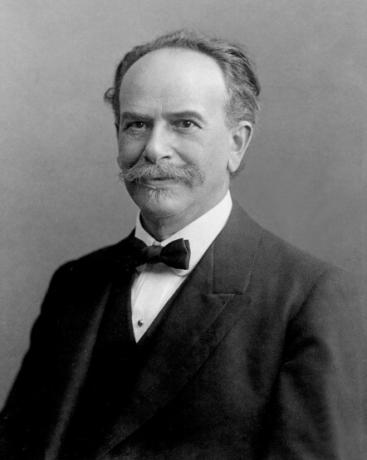THE otherness it is the recognition that there are unique and subjective people and cultures that think, act and understand the world in their own ways. Recognizing otherness is the first step towards the formation of a fair, balanced society, democratic and tolerant, where everyone can express themselves, as long as they also respect the otherness of others.
See too: Social inequality - one of the results of the lack of otherness in the social sphere
meaning of alterity
The dictionary Aurelio brings the following definition of alterity:
“al.te.ri.da.de - (French alterite) - feminine noun - 1. Quality of what is other or different. - 2. [Philosophy]. Different character, metaphysically.”|1|
The word alterity comes from the Latin word alterites, which means be the other, therefore, designates the exercise of putting oneself in the other's place, of perceiving the other as a singular and subjective person.

alterity is the recognition of difference
, both in common linguistic meaning and in meaning philosophical, because otherness is what is, by essence and definition, different. According to Nicola Abbagnano, a lexicologist who published an immense dictionary of philosophical terms, alterity means “being another, placing oneself or constituting oneself as another”|2|.Do not stop now... There's more after the advertising ;)
alterity in psychology
The meaning of alterity for psychology is not far from the philosophical and common meanings of the term, with the except that psychologists have used a lot of anthropological studies to increase a meaning in the term that refers à culture. The act of seeing the other as a singular being implies recognizing that the other is different from you. The recognition of individual difference is the first step in exercising respect and tolerance, as you want your individuality to be respected, it is necessary that you respect the individuality of the other.
According to the Psychology Dictionary, alterity is the “concept that the individual has according to which other beings are distinct from him. Contrary to ego”|3|. While the ego is the individual instance, the otherness leads us to the collective recognition.
In this sense, it is the otherness that can guarantee the cohesionSocial, for example. Alterity and its recognition are also the key to avoiding the ethnocentrism, the exploitation of other peoples and slavery. Thinking with anthropology, alterity is the means by which it is possible to see their specificities in other cultures, avoiding prejudgment.
otherness and ethnocentrism
THE anthropology it originated as a strongly ethnocentric science. Edward Burnett Tylor and Herbert Spencer, the first English anthropologists, proposed a theory, which they called classification of races, extremely racist and ethnocentric.
For thinkers, there was a hierarchy of races which was attested by culture: the clearer the people, the more developed the culture, while that societies formed by darker-skinned people tended to develop cultures lower. Now, this racist and ethnocentric view, which linked the ancient concept of race to culture, goes to the opposite extreme of what the meaning of otherness says.

Only the German geographer and anthropologist, based in the United States, Franz Good could see the need to unlink "race" from culture. For the thinker, understanding a society meant entering it, learning its language, living with its natives and, above all, putting aside prejudices and the vision of their own culture. Otherwise, the expected effect might be to look at culture other than your own as inferior.
Another important 20th century anthropologist, the Polish Bronislaw Malinowski he argued that the immersion in culture it must be total and complete and that the anthropologist must spend a lot of time in the society in question to really understand it.
This exercise, first enunciated by Boas and put as a method by Malinowski, was well described in the book South Pacific Argonauts. Interpreting Malinowski's work, we can say that alterity is a fundamental part of the anthropologist, as without it the scholar falls into the trap of ethnocentrism.
See more: Indigenous culture - an important part of Brazilian culture rejected by ethnocentrism
otherness and empathy
It is common to think that otherness and empathy are synonymous, but they are different terms. While empathy refers to the ability to put yourself in the other's shoes., feeling the pain of the other in an imaginary way or by analogy, otherness is the ability to recognize that the other is that way because he is, essentially, different from you. In addition to recognizing difference, alterity proposes an ethical respect for the other as a singular being. É in the alterity that tolerance arises.

examples of otherness
According to the contemporary Polish sociologist ZygmuntBauman, the world is increasingly fragmented. The current trend is the individualism, a lifestyle that leads to selfishness. In this sense, alterity fits into collective moments, giving way to tolerance. let's see some examples of otherness:
Imagine that immigrants and refugees begin to enter your country, starting to inhabit your city. Exercising alterity, in this case, is to recognize that those people suffered and that they left their homelands because they were forced or because they wanted to lead a dignified life. Exercising alterity, in this case, is to welcome and offer the possible support to them.
Imagine that you are a practitioner of a Christian religion, Catholic in nature. In the world there are Protestant Christians, Spiritist Christians, Muslims, Hindus, Candomblécists, etc. The otherness lies, in this example, in the fact that you must recognize each person's history and individuality and respect their religious choice without prejudice to it.
Grades
|1| HOLLAND, Aurélio B. Portuguese Language Dictionary. 6. ed. Curitiba: Positive, 2004.
|2| ABBAGNANO, Nicola. Philosophy Dictionary. 3. ed. São Paulo: Martins Fontes, 1998, p. 35.
|3|Psychology Dictionary. São Paulo: Itamaraty, v.5, 1973., p. 75
by Francisco Porfirio
Sociology Professor



